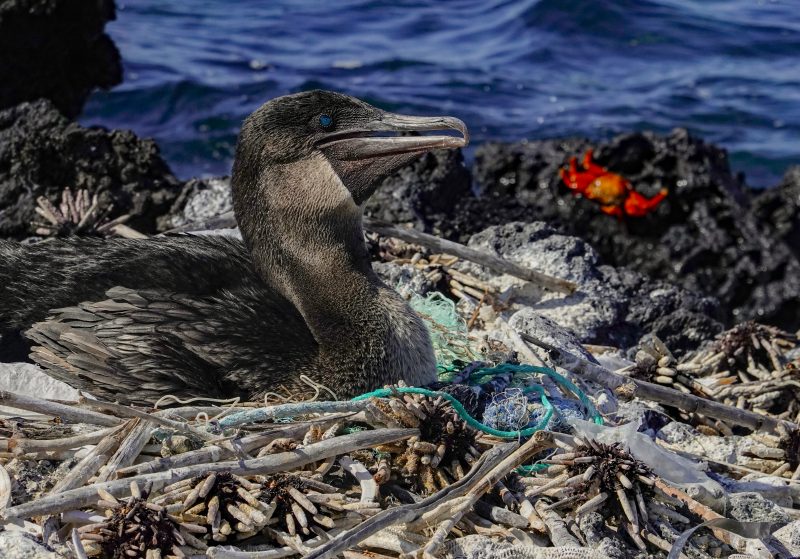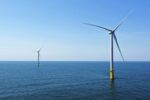Canada to ban single-use plastics from 2021
A flightless cormorant sits on her nest surrounded by plastic waste on a remote island off the coast of Ecuador (RODRIGO BUENDIA)
Montreal (AFP) – Canada will ban single-use plastics from 2021, Prime Minister Justin Trudeau announced Monday, declaring it a “global challenge” to phase out the plastic bags, straws and cutlery clogging the world’s oceans.
“I am very pleased to announce that as early as 2021, Canada will ban harmful, single-use plastics from coast to coast,” Trudeau said, arguing Canada has a unique chance to lead the fight against plastic pollution as the country with the world’s longest coastlines.
Less than 10 percent of plastics used in Canada are currently recycled, he said.
Each year a million birds and more than 100,000 marine mammals worldwide suffer injury or death by becoming entangled in plastic or ingesting it through the food chain — with single-use items representing some 70 percent of the plastic waste littering the marine environment.
“You’ve all heard the stories and seen the photos. And to be honest, as a dad it is tough trying to explain this to my kids,” Trudeau said.
“How do you explain dead whales washing up on beaches around the world, their stomachs jam-packed with plastic bags?”
“How do I tell them that against all odds, you will find plastic at the very deepest point of the Pacific Ocean?”
“People around the world are grappling with this every day,” Trudeau said. “As parents we’re at a point where we take our kids to the beach and we have to search out a patch of sand that isn’t littered with straws, styrofoam or bottles.
“That’s a problem.”
– ‘The entire life-cycle’ –
Straws, plastic bags, cutlery, plates and stir sticks would be among the items banned, a government statement said. The list will be refined based on further scientific research between now and 2021.
Trudeau said producers of other plastics — such as bottles or food packaging — will be held responsible for “the entire life-cycle” of their products.
Both plastic manufacturers and the companies using their products, as in packing materials, will have to provide recycling plans.
Canada, France, Germany, Britain and Italy, along with the European Union, subscribed at last year’s G7 summit in Quebec to a new charter against pollution in the world’s oceans. The United States and Japan did not join the pact.
The non-binding Ocean Plastics Charter called on participating countries and the EU to commit to making all plastics reusable, recyclable or recovered by 2030.
A total of 21 governments have by now taken that pledge, Trudeau said. In addition, the EU earlier this year passed legislation this year to ban single-use plastic products starting in 2021.
– ‘A national solution’ –
Several Canadian cities already ban the use of plastic bags — Montreal passed its ban last year — and some provinces have banned other products.
But Trudeau said a “national solution” was needed.
“Every year, Canadians throw away over three million tons of plastic waste,” the prime minister said in a statement. “This represents up to $8 billion per year in lost value and wastes valuable resources and energy.”
Recycling, he said, would not only cut down on pollution but would help produce 42,000 jobs in the recycling and recovery businesses.
The environment is shaping up as a key issue in Canadian legislative elections set for October, with Trudeau’s main challenger vowing if he wins to roll back environmental protections, including a federal carbon tax and a tanker traffic ban along a pristine part of the Pacific coast.
And while Trudeau has declared it a top priority, a recent parliamentary report concluded Canada is doing too little to combat climate change, even as government scientists warned the country was warming at twice the global rate.
Disclaimer: Validity of the above story is for 7 Days from original date of publishing. Source: AFP.


